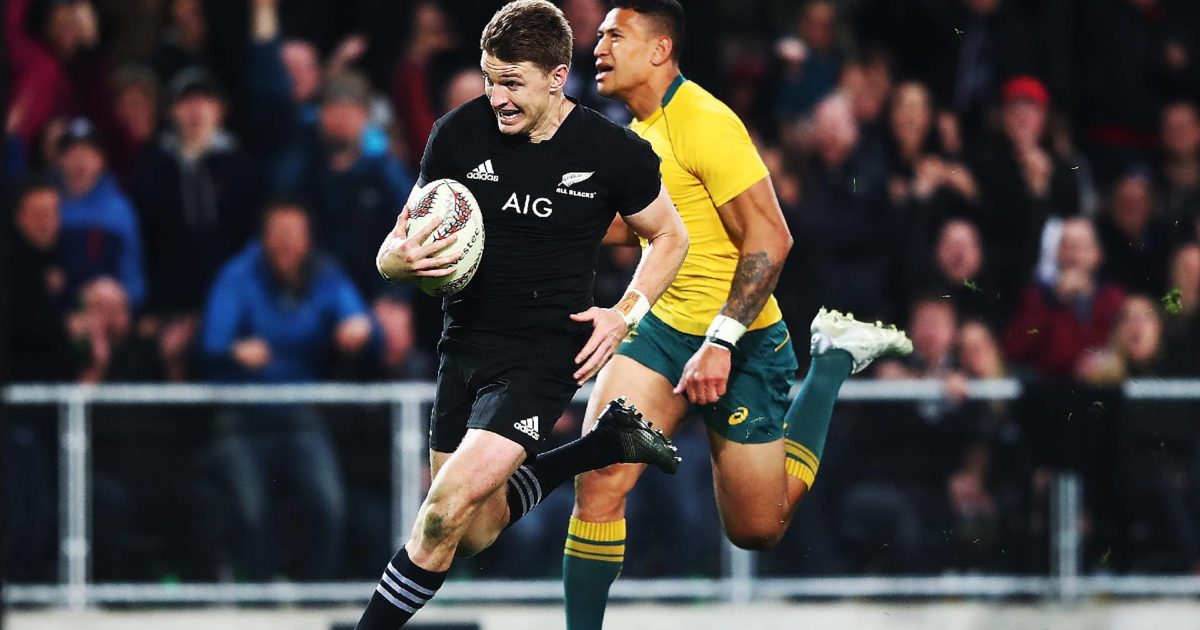Flashback Friday: Is this the greatest All Blacks comeback of the professional era?

It’s been 18 long years since the Wallabies last lifted the Bledisloe Cup, and the ongoing coronavirus pandemic has the potential to extend that unwanted losing streak by yet another year.
Australians born after August 3, 2002 have never witnessed their national skipper – whether it’s been Stirling Mortlock through to Michael Hooper – lift aloft the esteemed trophy in the face of the all-conquering New Zealanders.
Over the course of time, those on the western side of the ditch have instead become accustomed to the likes of Tana Umaga, Richie McCaw and Kieran Read hoisting the silverware time and time again.
That doesn’t mean the Wallabies haven’t come close to snatching back the trans-Tasman crown on a few occasions over the years, though.
Perhaps the closest they’ve come to breaking their prolonged drought came three years ago in Dunedin in what could be argued the greatest All Blacks comeback in the professional era.
After having been swept aside 54-34 in Sydney the week beforehand, the visitors needed a victory to keep their series hopes alive.
Those hopes were thriving amongst the small but boisterous Australian contingent at Forsyth Barr Stadium that night when their side ran up a 17-0 scoreline inside the first 15 minutes of the encounter.
Former fullback Israel Folau waltzed over for the match’s first try after picking off a Damian McKenzie pass well inside his own half within the opening minute of the clash.
Hooper capitalised on some flaky All Blacks defence from a lineout drive deep in enemy territory 10 minutes later, before setting up Bernard Foley for his side’s third try following a Will Genia breakaway in the 15th minute.
A slow but steady comeback by the hosts ensued, though, with Australia’s buffer reduced to just three points by half-time thanks to tries from Rieko Ioane and Aaron Smith.
Beauden Barrett was the next to strike in the 61st minute when he took advantage of a numerical mismatch on the short side of an attacking scrum five metres out from the Australian tryline.
The All Blacks’ four-point lead – their first of the match – didn’t last long, however, as Genia popped up again to slip past the tackle attempts of Ardie Savea, McKenzie and Smith to put the Wallabies’ noses in front with under 14 minutes to play.
Once again, though, the Kiwis overturned the one-point deficit in a matter of minutes through local legend Ben Smith, who cantered in unopposed for the eighth try of the contest through some good continuity by the likes of Barrett and McKenzie.
https://www.instagram.com/p/B_V2j7sge5m/?utm_source=ig_web_copy_link
That wasn’t enough to starve off the Wallabies, who struck back with what many expected to be the final blow of the match when a bloodied Kurtley Beale crashed between Sam Whitelock and Ofa Tu’ungafasi to score under the sticks in the 76th minute.
Down 29-28 with less than three minutes to play, the All Blacks needed a miracle play to prevent the Wallabies – who were desperate to bring the cup back on their shores – from making the third test in Brisbane a decisive one.
A miracle play is exactly what Steve Hansen’s men conjured up, as they hit back right from the re-start.
Captain Read led the charge in disrupting Australia’s fielding of the ball from Lima Sopoaga’s kick-off, with Ioane bustling his way up to the 22 metres mark to put the opposition on the back foot straight away.
Two patient phases were then rewarded with a simply brilliant backline manoeuvre, which saw quick hands from Sopoaga and Scott Barrett allow Read to burst through a gaping hole in the Wallabies’ defensive line.
The flailing covering efforts of Sean McMahon wasn’t enough to stop the ex-New Zealand skipper from firing an in-field offload to the supporting TJ Perenara, who had the honour of freeing up Beauden Barrett on his outside to stroll on home untouched.
Australia had no answers in the final minute-and-a-half as the All Blacks ground their way to full-time in a breathtaking – or heartbreaking, depending on how you look at it – comeback victory to stow the Bledisloe Cup away for another 12 months.










































































